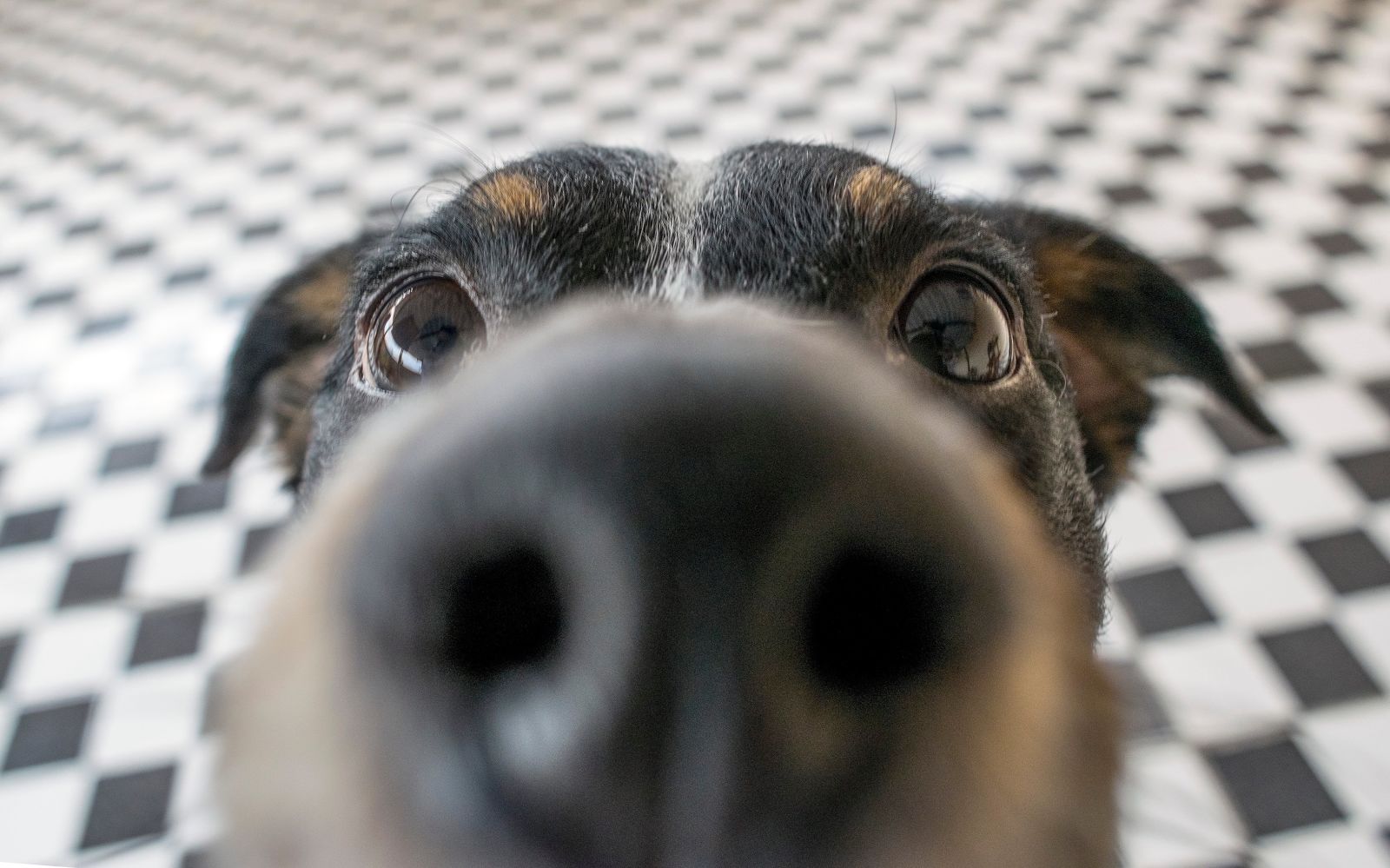Update:
Researchers at the Veterinary Faculty of the University of Helsinki have been training dogs to be able to detect COVID-19 since early 2020. In May, the research group reported that it had successfully trained dogs to detect COVID-19 in urine samples. But progress has happened fast. Now, the dogs have been trained to detect COVID-19 from sweat on our skin and have started trial testing at the Helsinki Airport.
According to International Airport Review, these canines need as little as 10 molecules to detect COVID-19, while current test equipment requires 18,000,000. And there’s no comparison of speed. Abbot Labs has a 15-minute test that costs $5 to administer. Dogs can detect COVID-19 more or less instantly, and without an uncomfortable nasal swab.
The screening process won’t be as simple as letting passengers walk by while a dog casually sniffs, however. Instead, passengers will be instructed to rub their skin with a wipe, then drop the wipe into a cup. The dog will sniff this cup inside an isolated booth. This arrangement allows for anonymous processing that protects a person’s privacy, while shielding the handler from direct contact with a potentially infected passenger. Any passenger who is suspected of having COVID-19 will be directed to the airport’s health information area.
The Helsinki program will soon employ four dogs but could expand to as many as 22 as enough canines are trained for the task. And while it’s unclear if the idea will scale beyond one airport—nursing homes would be another excellent use case of such dogs, according to researchers—it makes for a fascinating case study on how we don’t necessarily need more technology to screen for COVID-19 when 130,000 years of domesticated canine evolution is already on our side.
Background
As the COVID-19 pandemic continues to spread, early, ideally real-time, identification of SARS-CoV-2 infected individuals is pivotal in interrupting infection chains. Volatile organic compounds produced during respiratory infections can cause specific scent imprints, which can be detected by trained dogs with a high rate of precision.
Methods
Eight detection dogs were trained for 1 week to detect saliva or tracheobronchial secretions of SARS-CoV-2 infected patients in a randomised, double-blinded and controlled study.
Results
The dogs were able to discriminate between samples of infected (positive) and non-infected (negative) individuals with average diagnostic sensitivity of 82.63% (95% confidence interval [CI]: 82.02–83.24%) and specificity of 96.35% (95% CI: 96.31–96.39%). During the presentation of 1012 randomised samples, the dogs achieved an overall average detection rate of 94% (±3.4%) with 157 correct indications of positive, 792 correct rejections of negative, 33 incorrect indications of negative or incorrect rejections of 30 positive sample presentations.
Conclusions
These preliminary findings indicate that trained detection dogs can identify respiratory secretion samples from hospitalised and clinically diseased SARS-CoV-2 infected individuals by discriminating between samples from SARS-CoV-2 infected patients and negative controls. This data may form the basis for the reliable screening method of SARS-CoV-2 infected people.
